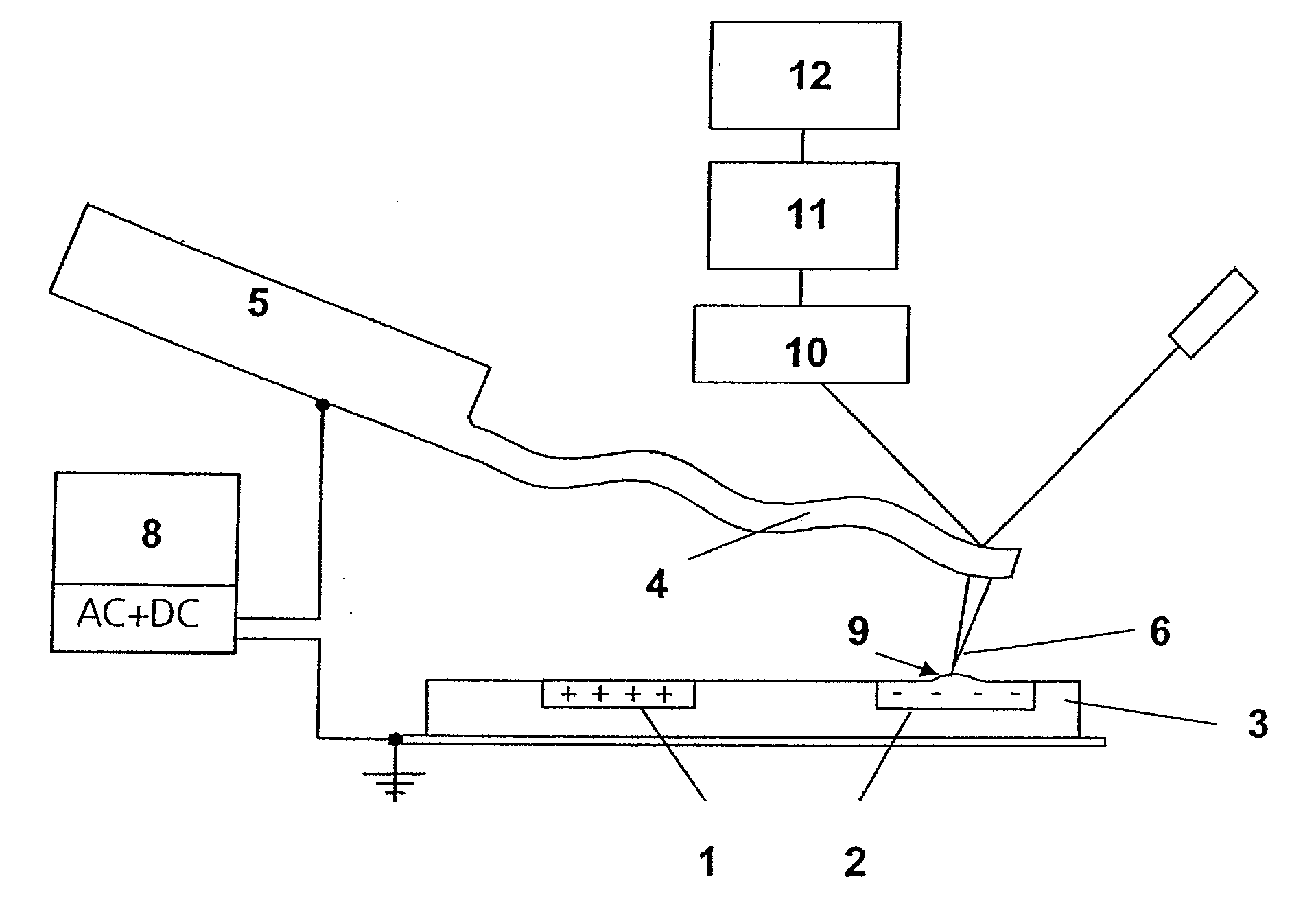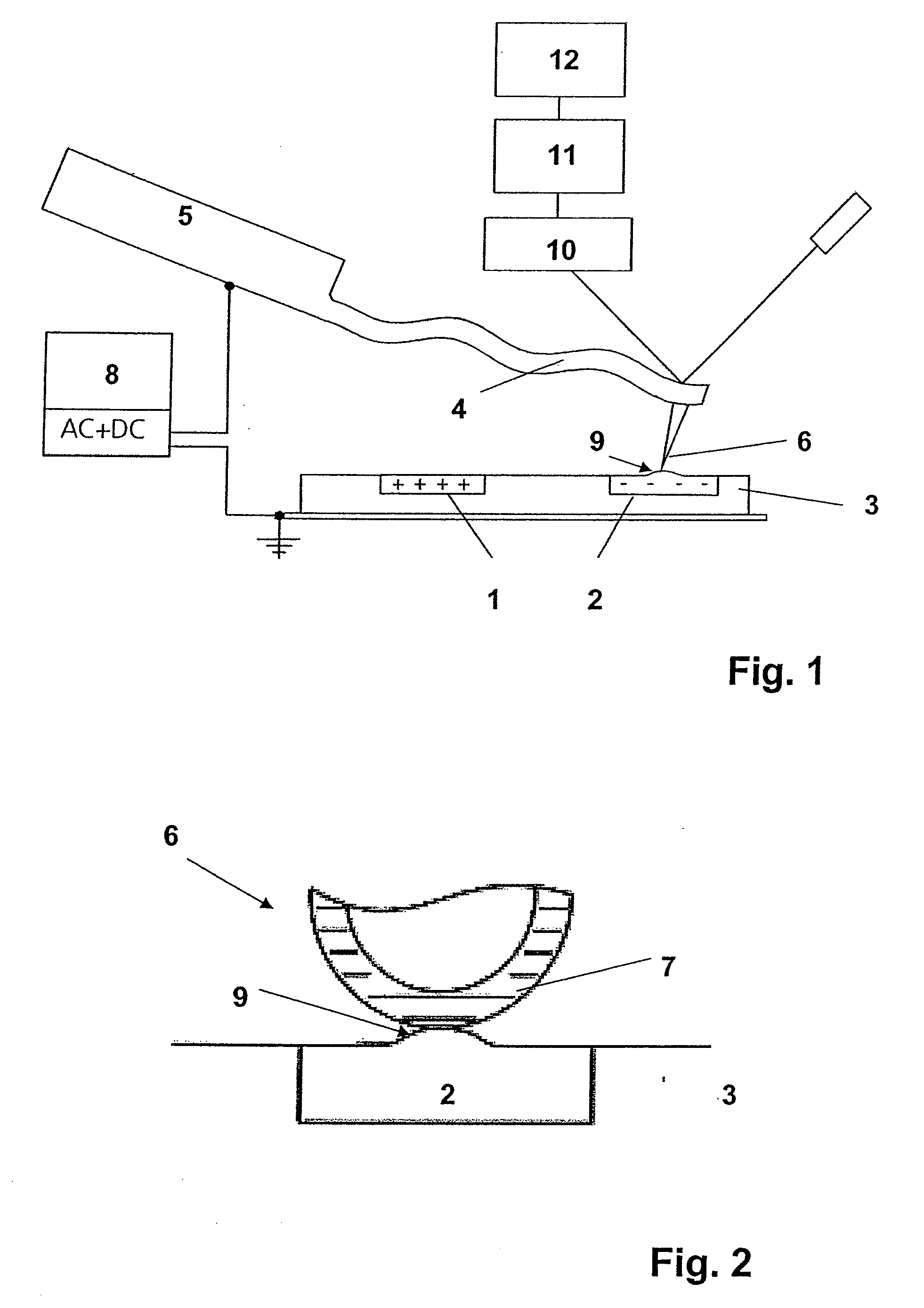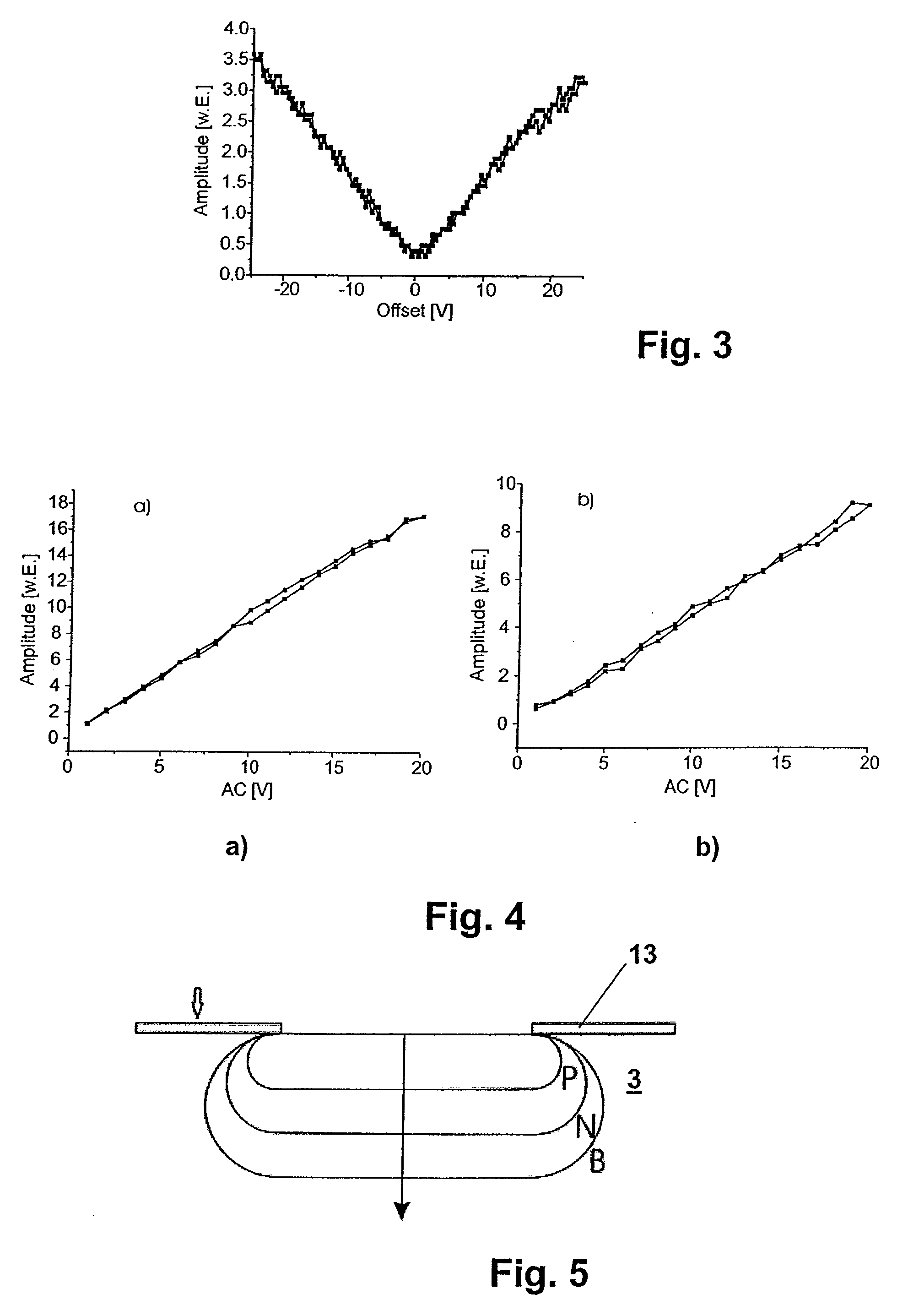Method for determining a dopant concentration in a semiconductor sample
a semiconductor and concentration technology, applied in the field of semiconductor concentration determination, can solve problems such as periodic lattice distortion, and achieve the effect of small contact radius and higher local resolution
- Summary
- Abstract
- Description
- Claims
- Application Information
AI Technical Summary
Benefits of technology
Problems solved by technology
Method used
Image
Examples
Embodiment Construction
[0023]FIG. 1 shows the experimental setup for detecting doped regions 1 and 2 depending on whether they are positively or negatively doped, of a semiconductor sample 3. The device for investigating or determining the dopant concentration in the respective semiconductor regions 1 and 2 does not differ from a scanning microscope arrangement known per se, in which a leaf spring 4 clamped on one side, usually connected on one side to a chip 5, is scanned over the surface of the semiconductor probe 3. At the free end of the leaf spring 4 there is provided a sensor tip 6 which, in the method according to the invention for determining dopant concentration is brought into contact with the semiconductor sample 3, especially with the doped regions 1 and 2. The sensor tip 6, which mostly consists of silicon and is shown in a detailed cross-sectional view in FIG. 2 is surrounded with a metallic electrically conductive coating 7. Through contact of the sensor tip 6 with, for example, the doped r...
PUM
 Login to View More
Login to View More Abstract
Description
Claims
Application Information
 Login to View More
Login to View More - R&D
- Intellectual Property
- Life Sciences
- Materials
- Tech Scout
- Unparalleled Data Quality
- Higher Quality Content
- 60% Fewer Hallucinations
Browse by: Latest US Patents, China's latest patents, Technical Efficacy Thesaurus, Application Domain, Technology Topic, Popular Technical Reports.
© 2025 PatSnap. All rights reserved.Legal|Privacy policy|Modern Slavery Act Transparency Statement|Sitemap|About US| Contact US: help@patsnap.com



